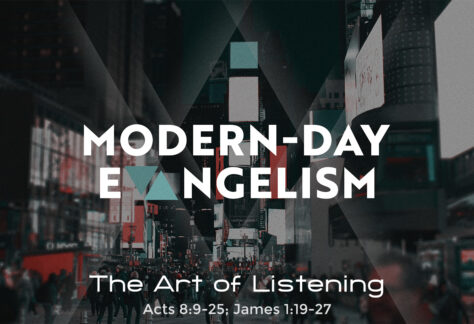As Jesus rode into Jerusalem for the last time, His followers waved palm branches as shouted “Hosanna!” Jesus’ Triumphant Entry (Palm Sunday) sets the stage for the other events for the rest of the week.
Text: Matthew 21:1–11
The cheering of a crowd heard all around you. There is something about that sound that invigorates us. When I was in eighth grade, I played on my school’s basketball team. I wasn’t the fastest, strongest, or best shooter on the team but I worked hard to always do my best. About midway through the season we played a team that historically had beaten our school time and time again. As the game began to wind down, we found ourselves down by one point with just seconds left in the game. As we came down the floor I caught the eye of my teammate that had the ball. He saw that I had a good chance at either making a shot to put us ahead or get fouled attempting to do so. As I caught the ball and tried to shoot I was fouled sending me to the free throw line for two shots to possibly put us ahead. I remember thinking that all I had to do was make the first shot and then I would have the rhythm to make the second shot. As the ball released from my hands, I made both free throws and help us win the game. After I made the second free throw I heard our home crowd roar because we had just given us a chance to secure the upset against one of our rivals.
As Jesus entered into Jerusalem for the last time, He heard the sounds of the crowd cheering for Him. Matthew, throughout his Gospel, has been weaving in this theme of the Davidic Messiah, the King who was promised to rule over Israel and even all nations of the earth. As Jesus enters Jerusalem for the last time in Matthew’s Gospel (21:9), we hear the crowd chanting, “Hosanna to the Son of David!” Just before this, Matthew connects this scene to the prophecy made in Zechariah 9:9, which says that Jerusalem should rejoice because her king is coming to her riding on a donkey.
The people were excited to see Jesus that day because they expected Him to be the Messiah that they longed for. For most Jews in Jesus’ day, they believed that the coming Messiah would finally bring them salvation from their oppression. However, their focus was on the physical oppression from Rome. Matthew leaves out a phrase from Zechariah’s prophecy. He leaves out “righteous and victorious” to describe the king. This can’t be a mistake; he has quoted the rest of Zechariah 9:9 in full. Why would Matthew want to leave out these descriptions of the Messiah at this point in his Gospel? Remember the context here. We are still pre-Passion. Jesus still has yet to die and then rise. It is only after the resurrection of Jesus that Jesus can finally, and rightly be regarded as “victorious.” By deleting these two descriptions, Matthew focuses our attention on the other one: humble or “lowly.” The Son of David who enters Jerusalem on a donkey is not a conquering military hero but a lowly, gentle king who is reshaping what it means to be Messiah. Reshaping Israel’s and the entire world’s expectations for what a Savior looks like. Jesus’s way of being Messiah does not come by the way of military might and victory, but it comes by the way that leads to the cross.
As Christians, we should remember that this is the King we are following. Our lives should be patterned after his. We also should recognize that Jesus asked his disciples to do something very odd at the beginning of this passage, but it was all to fulfill God’s wonderful plan. When we are called to do things for Christ that don’t make sense from our current perspective, we should trust him anyway.



